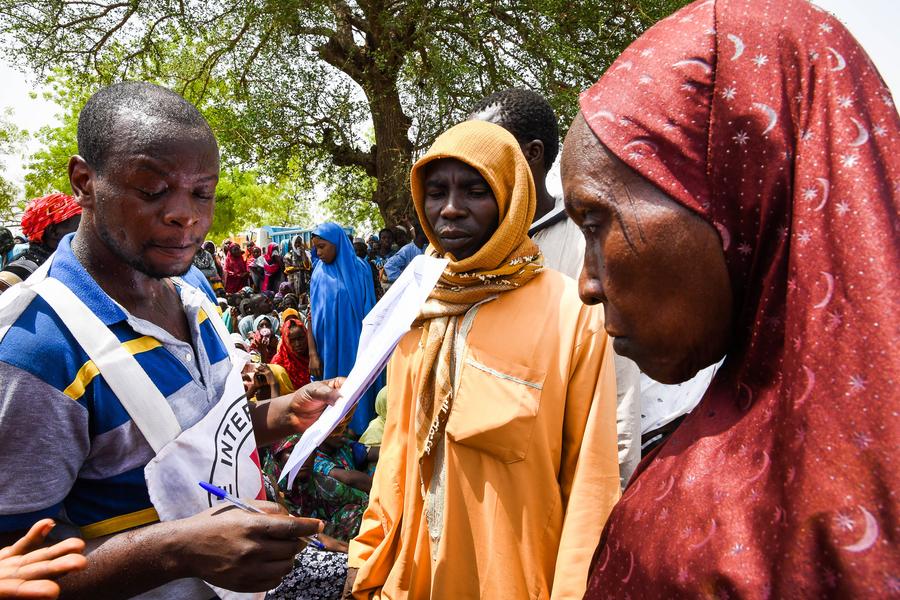An agricultural program by the International Committee of the Red Cross (ICRC) is helping the displaced persons in Cameroon’s Far North region to earn a living through farming.
YAOUNDE, June 21(Xinhua) — In Hile Alifa, a locality in Logone-et-Chari division of Cameroon’s Far North region, hundreds of displaced people live in a sprawling mass of shelter made of wood and tall grass.
Abaicho Boukar is one of them. He fled with his two wives and children after gunmen invaded his village, Karina, and inflicted pain and suffering on the villagers.
They hoped to find peace and sanctuary when they arrived at Hile Alifa but again, life became unbearable.
More than 80 percent of the population in the region rely on agriculture to make a living but years of fighting between government forces and Boko Haram armed groups and worsening humanitarian crises have left the region’s agriculture sector struggling.
The bloody insurgency has prevented farmers from planting or harvesting crops for years in volatile parts of the region, forcing once wealthy farmers like Boukar to live beggarly.
« There is no money and no food to eat. Look at the children. I have 20 children, two of them remain in Karina. We do not have food, » Boukar said.
As conflict and insecurity are the main drivers of acute food insecurity, the situation is precarious in the Far North region where internally displaced persons and refugees put a strain on household stocks and productive resources of host households.
There is hope.
An agricultural program by the International Committee of the Red Cross (ICRC) is helping the displaced persons to earn a living through farming.
When Xinhua reporters arrived at Hile Alifa, ICRC was distributing seeds to the displaced people and host communities ahead of the rainy season to boost food security and combat growing hunger and dwindling aid in a region threatened with famine.
« I am happy because the Red Cross gives us seeds, » said Boukar, adding that he hoped to have a good harvest this year.
Among those who received such help was 23-year-old Feda Matna who fled from her village most recently during a flare-up of violence. She was preparing rice for her three children.
« The Red Cross helped me with the rice, the lamp, the mattress, everything, with the pots to prepare. I am very happy because there was no one to give us seeds before the Red Cross arrived, » she said.
The ICRC initiative provides displaced people, returnees and host communities with okra, sorghum and cowpea seeds and other agricultural inputs to increase their crop production, said ICRC agricultural engineer Arsene Kouame.
« We give seeds to support their resilience capacity to be able to bounce back from the shocks they experience. Each year we have around 7,000 households that we help, that is for classic rain-fed agriculture, we also have market gardening projects, which provide income, » Kouame said.
ICRC provides emergency assistance for new arrivals to allow them to eat and shelter and live with dignity, Kouame said.
« For those who have been there for more than a year, and who are going to do an agricultural season and who are well integrated with host communities, we are providing an agricultural response. Our activity is to support households affected by conflicts, to recover economically, and also to be able to reduce their suffering by providing them with the means to do so, live in dignity, » he added.
As the world commemorates World Refugee Day on June 20, the ICRC is helping displaced people in the region to find a sense of purpose in the valuable farming skills they have brought to their new communities.
World Refugee Day which was first established on June 20, 2001, by the United Nations, is designed to celebrate and honor refugees from around the world. ■



